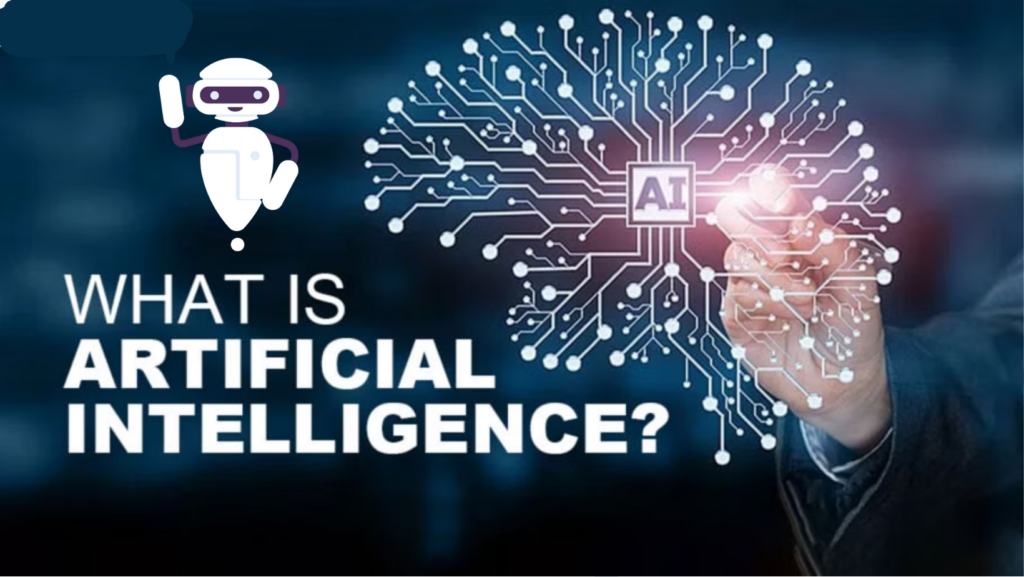Introduction
In this article, we’re going to dish out the deets on AI technology; we’ll dive deep into its history, how it works, what it can do, and what it means for our society.
Artificial intelligence, or AI, is like a brainy digital wizard that can do things just like humans do! It’s all the rage these days and is being used in all sorts of cool things, like cars that drive themselves and little helpers like Siri and Alexa.
History of AI Technology
The history of AI technology goes way back to the 1900s when super-smart people started making computer programs that could copy what humans did. Some of the big moments in AI history include:
- Making neural networks in the 1940s and 1950s, which did stuff like a human brain would.
- In the 1970s and 1980s, expert systems were developed that could perform tasks similar to those performed by a human expert in a specific field.
- Building machine learning programs in the 1990s and 2000s made machines smart by learning from data.
Now, machines can do things that humans used to be the only ones who could do, like to recognize voices, understand languages, and make choices based on a bunch of facts.
Types of AI
There are three main types of AI:
- Narrow or Weak AI: This type of AI is designed to perform specific tasks, such as facial recognition or language translation. It has a high frequency of usage in everyday applications.
- General or Strong AI: This type of AI is designed to perform any intellectual task that a human can. However, it is still in its early stages of development and is not widely accessible.
- Super AI: This type of AI is beyond human-level intelligence and is purely a theoretical concept.
How AI Technology Works
AI technology works by using math and computer code to look at data and make choices based on that data. There are three main types of AI:
- Supervised Learning: The machine is taught on a set of labelled data and uses that info to make guesses about new data.
- Unsupervised Learning: The machine figures out patterns and ties between data all by itself, without any help.
- Reinforcement Learning: The machine learns by trying things out and getting rewards or punishments based on how it does.
Applications of AI Technology
AI technology is being used all over, from healthcare to finance to transportation. Some of the most exciting applications of AI technology include:
- Virtual Assistants: Little helpers like Siri and Alexa can understand what you say and do things for you.
- Self-Driving Cars: Cars that drive themselves use AI to steer and make choices on the road.
- Medical Diagnosis: AI programs help doctors take a closer look at medical images and figure out what’s going on.
- Fraud Detection: AI technology can find and stop cheaters who try to trick banks and other places.
- Language Translation: AI technology can help people talk to each other even if they don’t speak the same language.
Benefits of AI Technology
AI technology can make a lot of things way better! Here are some of the top ways it can help:
- Increased Efficiency: AI can do things a lot quicker and more accurately than humans, which means more things get done faster.
- Improved Accuracy: AI can look at tons of data and find important things that humans might not notice.
- Cost Savings: AI can do things that normally would take a lot of human work, which saves money.
- Improved Safety: AI can be put in places where it’s dangerous for people to go, which can keep people safe.
Challenges of AI
While AI has many potential benefits, there are also several challenges that must be addressed. Some of the key challenges of AI include:
- Ethical Concerns: AI raises many ethical concerns, including the potential for machines to replace human labor and the possibility of bias in decision-making algorithms.
- Privacy Concerns: AI relies on vast amounts of data to learn and make decisions, raising concerns about privacy and data protection.
- Technical Challenges: Developing AI systems that are reliable, accurate, and scalable is a significant technical challenge.
- Education and Workforce Development: The development and adoption of AI will require significant education and workforce development to ensure that people have the skills and knowledge needed to succeed in a world of AI.
However, there are also several challenges that must be addressed, including ethical and privacy concerns, technical challenges, and the need for education and workforce development.
Conclusion
So, have you ever thought about how we could make AI more like humans? It’s pretty cool how AI can help us out with things like making things more efficient, accurate, and safe, all while saving money. But there are also some concerns we need to think about, like privacy and ethics. Plus, we’ve got some technical challenges and education and workforce development needs to address. In short, we need to be responsible and thoughtful when it comes to AI so we can create a better future for everyone.
You may also like
-
Latest Technology: Why Are Mobile Games Changing the Way We Interact with the Digital World?
-
The Evolution of Storytelling in Video Games: From Pixels to Immersive Narratives
-
10 List of the Cheapest and Best Curved Type PC Monitors in 2024
-
The Role of Regulation Technology (RegTech) in Monitoring Online Color Prediction
-
How to Navigate Google Maps Transit Directions

